All Species Kinship A ‘Passionate, Effective’ Advocate for Abused Animals
by jim richmond
If neglected, abused, injured and abandoned animals – of all species – have a real guardian angel and advocate in West Michigan it has to be Sophia DiPietro, and the five other all-volunteer, all unpaid staff of the organization known as All Species Kinship (A.S.K.).
And while the bit stuffy sounding organizational name might conjure up the title of a Master’s degree thesis in grad-
 uate school, All Species Kinship, DiPietro and fellow travelers are all about practical, neighborhood based, feet on the ground, knock-on-the-door, eyes on the prize, animal advocacy and education in some of the toughest, most challenging areas of Battle Creek and west Michigan.
uate school, All Species Kinship, DiPietro and fellow travelers are all about practical, neighborhood based, feet on the ground, knock-on-the-door, eyes on the prize, animal advocacy and education in some of the toughest, most challenging areas of Battle Creek and west Michigan.
They travel neighborhoods – in fall and winter three times each week -- the back roads and backyards in their well used white van; looking for dogs who often have been left out in subfreezing weather, chained to the ground or a car tire, without water, food, or adequate protection from wind, rain, cold and snow. They are on the lookout to make sure animals have adequate shade and water on the “dog days” of summer as well as providing pet food to those residents who are down on their luck or have hit a rough patch in life.
They knock on doors, and talk to the animal owners – sometimes individuals who couldn’t care less about caring for their pet, but more often than not, DiPietro said, people who are consumed with concerns and challenges of daily living, “who don’t have phones, regular transportation, and sometimes enough food to eat, themselves.”
 “We’re positive. We treat people like we’d want to be treated and we don’t want to close down the conversation: ‘We’d like to help you out with your dog – can we spend a few minutes talking? We’ve got some straw (free relief supplies) and can show you how to pack straw in that doghouse to keep your pet warm.’”
“We’re positive. We treat people like we’d want to be treated and we don’t want to close down the conversation: ‘We’d like to help you out with your dog – can we spend a few minutes talking? We’ve got some straw (free relief supplies) and can show you how to pack straw in that doghouse to keep your pet warm.’”
“We are not animal control officers. We are not an animal shelter or humane society. Instead, our work is about proactive mobile outreach; reaching people, and animals, that would otherwise not reached. We are not out there to get people in trouble,” DiPietro emphasized.
A.S.K. reaches and makes a difference for animals that often have negatively associated stereotypes, or special needs as a result of the way in which they have been isolated outside – “the bully breeds” (pit bulls, Rottweiler’s and others) used for backyard breeding, owner status or lawn ornaments, the “worst of the worst,” with lots of health problems, years of physical or mental abuse, DiPietro noted.
A.S.K. volunteers are, bottom line, advocates for the animals. They will and do refer pet abusers to law enforcement when it’s too late for educational attempts to reform poor caretaking. But A.S.K is about changing owner behavior as well as providing emergency supplies, shelter or other quality of life improvements.
For an all-volunteer organization that pays no salaries to anyone, and relies exclusively on contributions, A.S.K. makes a little go a long way in making a difference for animals. 
Last year, on average, between 25 and 50 neglected 24/7 chained/kenneled/outside dogs were found and assisted by A.S.K. volunteers each week. A.S.K. distributed – free -- 600 straw bales used for doghouse installation, 50 secure plastic dog houses, and more than 4,000 pounds of free pet food for domestic dogs, cats, birds and rabbits, whose owners were experiencing temporary financial hardships.
A.S.K. operates a 24-hour helpline (877-596-777) and responds to calls about injured/orphaned wildlifeas well as dogs, throughout Calhoun County and beyond.
DiPietro and volunteers know where to find specialized medical treatment for animals, and willingly travel throughout the state to take animals to where they can be given the best chances for re-release back to the wild. On average, A.S.K responds to 500 wildlife emergency calls a year.
All of these services are expensive. And A.S.K. also operates a 100-acre no-kill sanctuary, near Jackson, Michigan, that DiPietro described as “a true sanctuary --- a facility that rescues and provides shelter and care for special-needs animals, emphasizing former chained dogs and abandoned domestic fowl, that have been abused, injured, abandoned or otherwise in need.”
A.S.K. was founded in 2001 by DiPietro and her mother Kathe. Today the organization is an IRS approved 501c3 nonprofit charitable organization with a five-member board of directors.
DiPietro, a Harper Creek High School graduate, holds a degree in wildlife biology from Michigan State University. She spends up to 60 hours a week on A.S.K. animal outreach, along with the other volunteers, for no pay.
“If you want to hang out with me, with us, as an A.S.K. volunteer, you have to be willing ‘to step in the road and in life’s traffic’ to reach and serve animals. It’s a lifestyle,” she said.
A.S.K. pays for 100 percent cost of supplies and other expenses through craft sales, a limited number of food donation bins located throughout Calhoun County, and “other small scale fundraising activities.” Nothing is spent on direct fundraising.
DiPietro noted that “without our donors, we wouldn’t exist and couldn’t do our work for animals. We’re thankful for and use every dollar wisely.”
Send your donation to: All Species Kinship (A.S.K.), P. O. Box 4055, Battle Creek, Michigan 49016. Visit the ASK website for more information at: www.allspecieskinship.org or on Facebook: www.facebook.com/allspecieskinship. Amazon Wish List: http://www.CLICK-HERE-To-Help.org/AllSpeciesKinship.htm
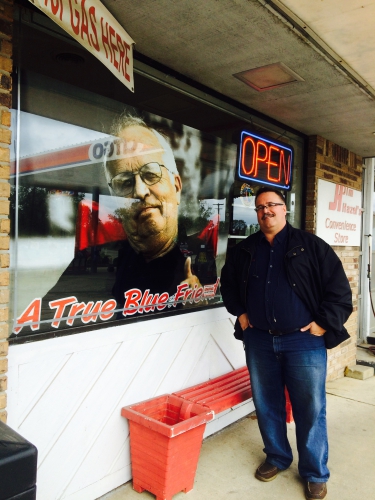








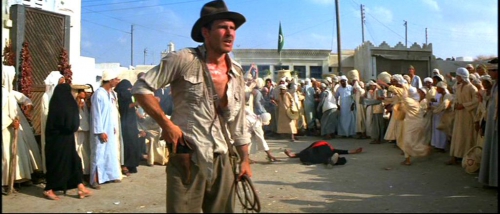





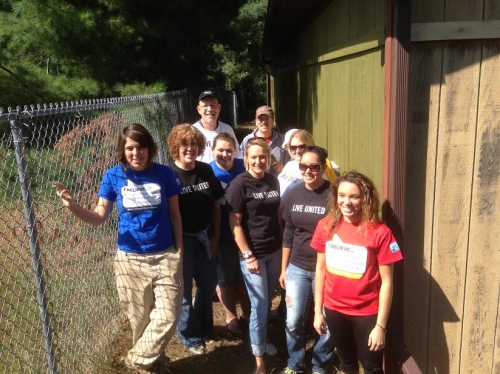 And there’s more than just flowers, trees, plants and produce growing at Leila this summer.
And there’s more than just flowers, trees, plants and produce growing at Leila this summer.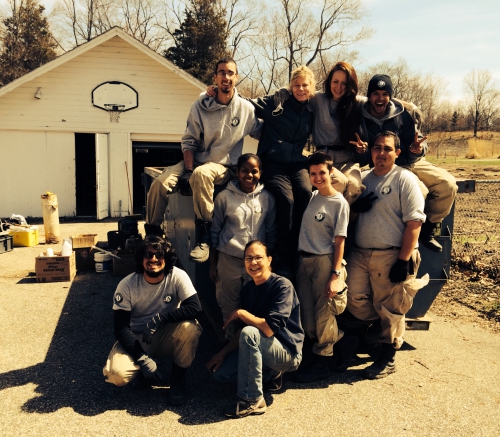 Several of the summer programs involving youth are supported through grants from the Binda Foundation, Miller Foundation, Battle Creek Community Foundation, Fair Food Network, and Post Foods.
Several of the summer programs involving youth are supported through grants from the Binda Foundation, Miller Foundation, Battle Creek Community Foundation, Fair Food Network, and Post Foods.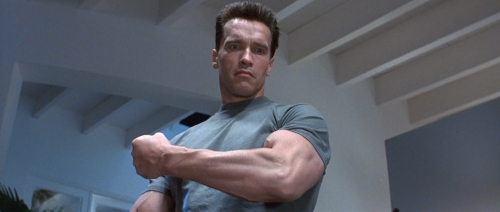
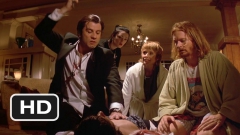


 The Tuesday group have donated an estimated 12,500 hours to the Arboretum over the past nine years – in 2013, alone, a total of 1,206 hours -- volunteer hours valued by the national INDEPENDENT SECTOR organization at $27,135 just for last year; and approximately $281,250 since 2005.
The Tuesday group have donated an estimated 12,500 hours to the Arboretum over the past nine years – in 2013, alone, a total of 1,206 hours -- volunteer hours valued by the national INDEPENDENT SECTOR organization at $27,135 just for last year; and approximately $281,250 since 2005.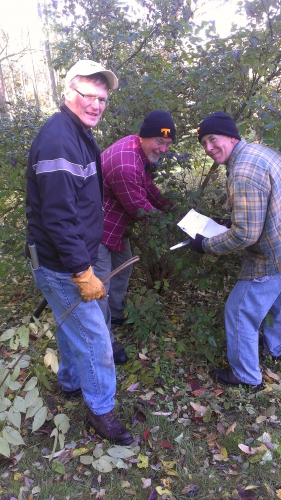



 If you lean progressive and Democrat, Andy Helmboldt may be the best choice in that group. For Republicans, moderates and conservatives, Dr. John Bizon -- the stronger candidate among their choices.
If you lean progressive and Democrat, Andy Helmboldt may be the best choice in that group. For Republicans, moderates and conservatives, Dr. John Bizon -- the stronger candidate among their choices. 

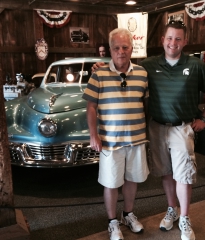 TWILIGHT ZONE YESTERDAY??
TWILIGHT ZONE YESTERDAY??
 Until this past year, the small fast food restaurant still operated, open irregular hours and days, as Figgs Fast Foods, serving -- many local aficionados claim -- the best hamburgers to be found in Battle Creek.
Until this past year, the small fast food restaurant still operated, open irregular hours and days, as Figgs Fast Foods, serving -- many local aficionados claim -- the best hamburgers to be found in Battle Creek.



 Faites à les miens rôti français, s'il vous plait
Faites à les miens rôti français, s'il vous plait


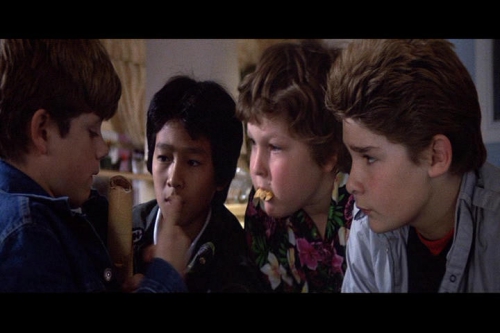

 “We’re positive. We treat people like we’d want to be treated and we don’t want to close down the conversation: ‘We’d like to help you out with your dog – can we spend a few minutes talking? We’ve got some straw (free relief supplies) and can show you how to pack straw in that doghouse to keep your pet warm.’”
“We’re positive. We treat people like we’d want to be treated and we don’t want to close down the conversation: ‘We’d like to help you out with your dog – can we spend a few minutes talking? We’ve got some straw (free relief supplies) and can show you how to pack straw in that doghouse to keep your pet warm.’”



 My friend, a seasoned “loss prevention” specialist, was waiting at the door.
My friend, a seasoned “loss prevention” specialist, was waiting at the door.